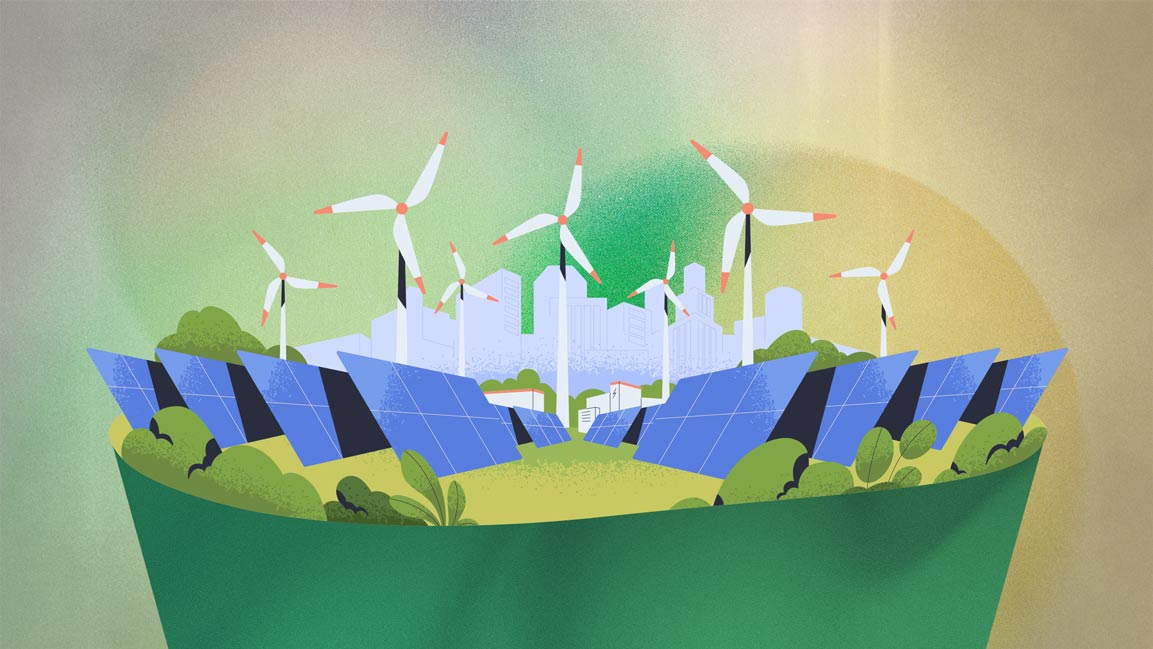- | 11:00 am
What does the world need from COP28?
We talked to business leaders and academics about what they expect from COP28, and they touched on a wide range of topics

Now accepting applications for Fast Company Middle East’s Best Workplaces For Women 2023. Click here to register.
“Final warning.” “Now or never.” “Crazy off-the-charts records.” We read the words of climate scientists every day.
Just this year, we’ve seen the increasingly devastating effects of climate change — human tragedy and economic upheaval.
If global warming continues, scientists predict even more devastating disasters that will destroy lives and livelihoods. Mass migration could follow. Failure to get emissions on the right trajectory by 2030 may risk catastrophic tipping points where climate change becomes self-perpetuating.
If done right, the green transformation will deliver a cleaner planet with less pollution, more resilient economies, and healthier people.
As COP28 unfolds, the stakes are high, and time will tell whether the summit turns the needle for a new model. Getting there requires action on many fronts.
Though much of the actual work of reducing carbon emissions, climate tech innovations, sustainable consumption, and cutting down waste and recycling does not happen at the annual UN Climate Change Conference, it’s a forum to bring all disparate efforts, share success stories and debrief failures, connect, collaborate, and make more ambitious commitments to mitigate climate change.
Nevertheless, the efficacy of global commitments is contingent upon tangible outcomes.
We talked to business leaders and academics about what they expect from COP28, and they touched on a wide range of topics – energy security, decarbonization, increasing the supply of renewable power generation, more comprehensive technological solutions for achieving net zero and, of course, people.
Here’s what they said:
Pankaj Sharma, Global EVP, Schneider Electric – Secure Power
“We all must come together — public and private organizations — to hold ourselves accountable for our role in creating a greener future. This collaborative effort allows us to identify gaps and the necessary course corrections.
While finding actionable steps to limit global temperature rise is urgent, it is equally important to implement updated policies that help at-risk communities cope with the harsh impacts of climate change on agriculture, health, and economic growth. As we strive to limit global temperature rise to 1.5°C—a target rapidly slipping away with ongoing carbon emissions—the summit becomes a reckoning for organizations, governments, and citizens worldwide. Immediate action is what the world needs. This is not only our collective responsibility but a privilege to do so.”
Ryan Lefers, co-founder and CEO of RedSea
“With the food production industry currently accounting for over a quarter of global greenhouse gas emissions and water insecurity on an upward trend – promoting innovative technologies and solutions reducing energy and water use as well as greenhouse emissions in agriculture is a critical discourse to be had at COP28.
It is estimated the global population will reach 10 billion by 2050. With increasing temperatures and climate change limiting commercial farming in hot climates, there is a great need for technology which transforms commercial farming on a global scale to be embraced.”
Prof. David Hannah, University of Birmingham – UNESCO Chair in Water Sciences
“Nearly half of the global population are highly vulnerable to climate change impacts- droughts, floods, heatwaves, wildfire, food and water (in)security. But, arguably, limited progress has been made since defining and implementing the Global Goal on Adaptation under the Paris Agreement in 2015. We need to change this at COP28 – through measurable targets and guidelines, and financing to support especially the most vulnerable people in LMICs.”
Abdul Rehman Tariq, regional sales director, Middle East at SolarWinds
“IT, particularly data centers, are amongst the worst regarding emissions and energy consumption. We must work more closely in the industry and act as a community to support our planet. It doesn’t have to be a giant leap, but smaller steps help, too. Think about the environmental impact when your next project starts; maybe there is another angle to it.”
Ahmed Ashour, co-founder and CEO of Pylon
“COP28 offers emerging markets a platform to showcase sustainable energy commitments and innovations with potential for developed markets. Decisive action is crucial, especially in emerging markets, and we advocate for concrete commitments for technology integration, financial support, and global cooperation in combating climate change and fostering sustainable economic growth.”
Faith Taylor, Vice President & Global Sustainability & ESG Officer at Kyndryl
“Even with climate change and historically high temperatures, we have the technological capabilities to reverse our global carbon emissions. Although we have a long way to go, progress has been made. I am optimistic about what we are seeing.
According to the International Energy Agency, global renewable energy capacity has risen and is estimated to continue in 2024. Aligned with this, I am excited by the renewable energy storage, which is up by over 30% and enables reliable and resilient energy access. Also, it is estimated that there will be 4 million EV sales by the end of 2023, representing a 35% increase.
Companies are now focusing on their digital transformation and aligning it with their sustainability goals, as our global sustainability study outlined. This will enable companies to implement technological solutions that will help reduce emissions while meeting their financial goals. Progress is being made, and we need to continue to build on this momentum worldwide.”
Vishal Agrawal, Academic Director of the Business of Sustainability Initiative at Georgetown University’s McDonough School of Business
“The world urgently needs global leaders at COP28 to deliberate on translating their discussions into actionable decisions and outcomes. Doing so requires more than embracing technological innovation; it involves determining effective ways to implement the business case for these solutions and models. Additionally, it is crucial to ensure any solutions or policies prioritize equity and accessibility. We must complement the business case for sustainability with an eye towards cross-sectoral collaboration to effectively tackle the climate crisis and pave the way for a sustainable future for generations to come.”































